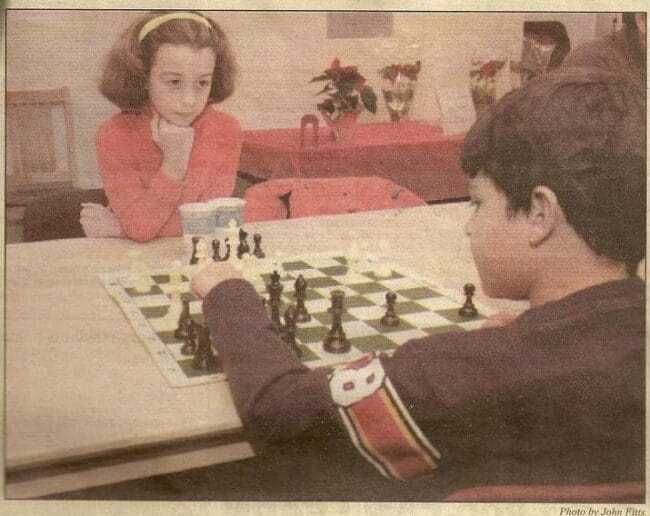When I was in elementary school, my siblings and I went to the chess club at our local library.
(This was back when playing chess would make you a “nerd.” Or, at least, back when I might have cared about being called a nerd.)
Chess club solidified my hazy idea of what all the pieces did. It also taught me a few fancy moves like “en passant” and “castling.” Best of all, we had pizza at every meeting.
My time in chess club ended when I moved up to middle school. I had fun, but I was no Bobby Fischer. Chess.com still pegs my Elo rating at 859 (novice).
If only mastering chess were as easy as going to chess club (and eating pizza)!
The first challenge of chess is learning how the pieces move. It can be a lot to remember starting out.
Once you’ve mastered those moves, the bigger challenge is coordinating a larger strategy.
For a long time after chess club, I didn’t like playing chess, because it involved a lot of thinking ahead. I didn’t realize there were predictable patterns for the opening, mid-game, and end game moves.
Since I had a limited understanding of good strategies and how to execute them, playing chess felt like guessing.
Composing music is just like this.
Even a simple hymn harmonization encompasses a lot of details.
You have to put in all this work to master chorale writing—the music theory equivalent of “learn how all the chess pieces move.”
Despite that work, mastering those skills doesn't really prepare you to coordinate a larger compositional strategy. Particularly when you learn, “Well, actually, in real music, the notes move a bunch of different ways in addition, or even in contradiction, to what you’ve be taught.”
It’s enough for any aspiring composer—and sometimes even professional composers—to throw up their hands and say, “I’m just going to stick with what I know!”
But, as in chess, in music there are patterns and principles that you can learn. You don’t always learn these in music school. Even when you do, they’re often delivered ad hoc and piecemeal.
This is why I created the Wizarding School for Composers: to collect all these strategies in one place so that other composers wouldn’t have to spend a decade-plus piecing them together like I did.


